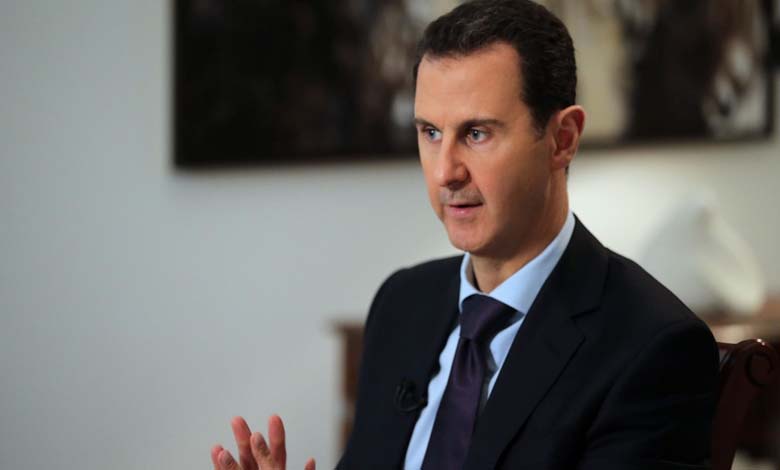France Faces Backlash Over Arrest Warrant for al-Assad

Recently, there have been diverse responses and remarks on European and French social platforms concerning the French legal system’s issuance of a warrant for the arrest of Syrian President Bashar al-Assad. These reactions encompass objections asserting that the judiciary lacks authority to issue such warrants.
The French legal system has issued an international arrest warrant for President Bashar al-Assad, alleging his involvement in crimes against humanity linked to chemical attacks in Syria during the summer of 2013.
Four warrants for involvement in crimes against humanity and war crimes linked to sarin gas attacks on August 21, 2013, in Eastern Ghouta and Moadamiyet al-Sham near Damascus led to the deaths of over a thousand individuals. These warrants targeted President al-Assad, his brother Maher, the effective commander of the Syrian army’s Fourth Division, and two brigadier generals: Ghassan Abbas, who heads Branch 450 of the Syrian Scientific Studies and Research Center, and Bassam Hassan, an advisor on strategic affairs to the President and a liaison officer between the presidential palace and the research center.
Several appeals were lodged contesting the decision, asserting a lack of clear and documented evidence identifying the perpetrators of the 2013 chemical attack in the Damascus suburbs.
The significant development occurred when a group of public prosecutors submitted a plea to the French judiciary, urging an assessment of the credibility and legality of the arrest warrant.
In the midst of the debate on whether France or any other nation has the authority to issue such rulings, our reporters in France and Austria conducted interviews with citizens and tourists to gauge public sentiment.
One interviewee suggested that global powers orchestrated the chemical attack in Syria in collusion with the Syrian regime. “It’s not just the Syrian president who is guilty, but many nations around the world are guilty of allowing this chemical attack to happen,” they stated. They also expressed scepticism about the investigation’s outcome, believing it might never conclude definitively.
Another person expressed confusion over the complexity of the situation in the region, saying, “I have trouble understanding where we stand between ISIS, Turkey, and Iraq. It’s too complex, and I’m sorry I don’t have a precise opinion on this.”
A third interviewee raised doubts about the validity of the ruling, questioning, “Do they possess the authority to issue it and enforce it?”
Conversely, another interviewee supported al-Assad, asserting, “Bashar al-Assad won’t face trial because he is a decent man; he’s not a criminal, in my view.”
Yet another participant contended that France lacks the authority to make decisions regarding prosecution or condemnation in this case, advocating for an international rather than a national process.
These varied viewpoints illustrate the contentiousness of the arrest warrant and the wider global discourse on the Syrian conflict and accountability for war crimes.












